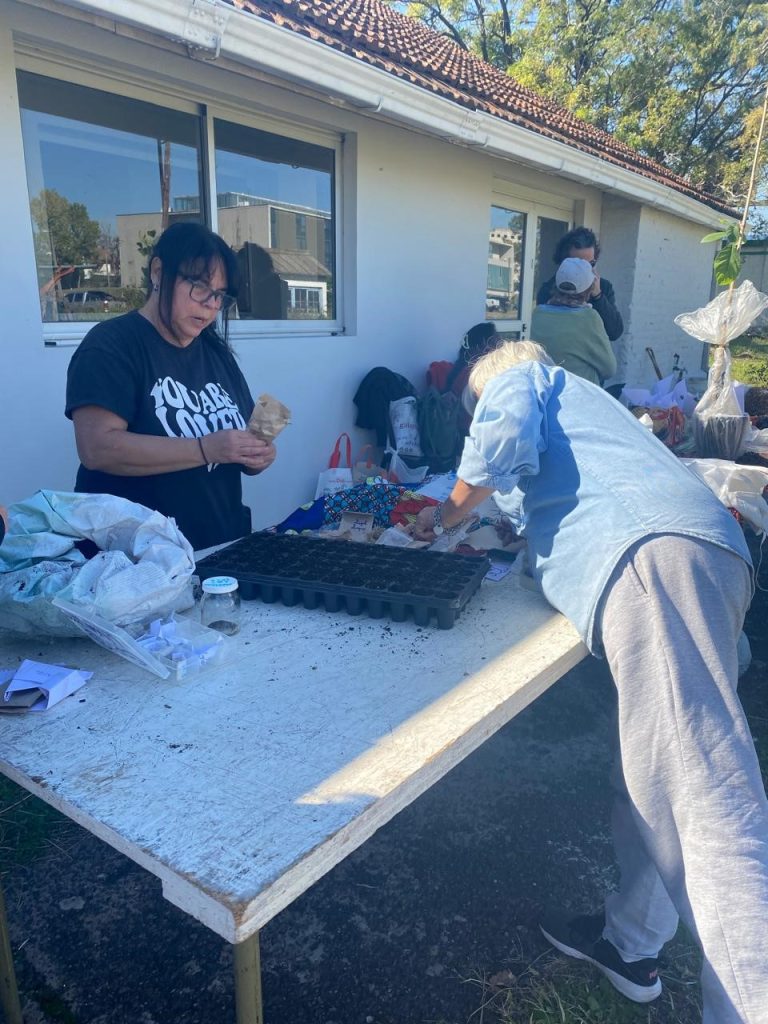On Tuesday, April 29, we held another work session at Casa Huerta Astro, located on the Miguelete Campus of the National University of San Martín (UNSAM). The activity was part of the project “Living Lab: growing, experimenting, and learning at UNSAM”, developed by Bioleft in collaboration with the Sustainability and Environment Area of the Secretariat of Outreach and Engagement (SEyV), and with technical support from INTA San Martín. Participants included Román Del Valle (Bioleft); España Verrastro and Juan Martín De La Cruz (UNSAM Outreach and Engagement); and Elba González, technician from the INTA San Martín Extension Agency.


The session began with a workshop led by Elba González, who shared techniques for extracting and preserving seeds from fleshy fruits such as tomatoes and eggplants. This practice is essential for safeguarding local varieties, helping to maintain genetic diversity and the autonomy of family and community gardens.

After the workshop, seedlings were planted in speedling trays, using autumn-winter species such as Creole lettuce, radish, Swiss chard, chicory, parsley, peas, mustard, cabbage, and beetroot. Seeds of basil and broccoli that had completed their cycles in the garden beds were also harvested.


As part of the garden’s maintenance, six bags of compost—produced from organic waste—were applied to enrich the soil of the three main beds. In addition, the seasonal crop rotation was carried out: broad beans were sown in the experimental bed, in association with peas and calendula. This practice aims to keep the soil covered and protected, while incorporating legumes as green manure to naturally enrich the soil with nitrogen and help prepare it for the upcoming spring–summer season.

These kinds of gatherings not only strengthen the connection between the university, local territory, and communities, but also enable the sharing of knowledge, seeds, and experiences that nurture the collective construction of more diverse, resilient, and just food systems.



We thank all those who joined us and the institutions that make these sessions possible. If you’re interested in getting involved or learning more about the seeds we evaluate, you can write to us at info@bioleft.org or follow us on our social media channels.